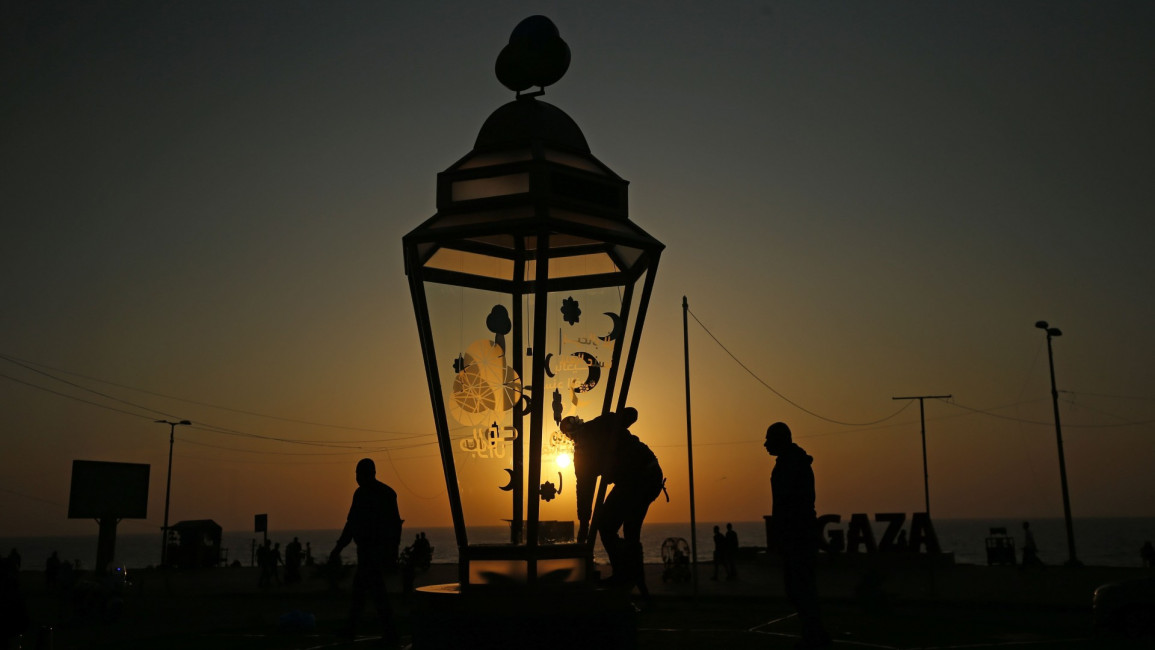Coronavirus imperils Ramadan meals, assistance in Gaza
The Muslim holy month of Ramadan is a time for giving, with mosques and charities feeding thousands, but coronavirus has left many in the Gaza Strip wondering how they will manage this year.
"The markets and mosques are closed. The good people who give us money or aid each Ramadan are facing a tough situation," said 47-year-old Palestinian Salah Jibril, who is unemployed.
He and his wife live with their six children in a cramped two-bedroom flat on the outskirts of Gaza City.
He said his family normally counted on using the assistance they received during Ramadan to help them throughout the rest of the year.
"This is the hardest Ramadan we have faced. We don't know how we will cope," he added.
So far, there have been 17 officially declared cases of coronavirus in the Gaza Strip, an enclave of roughly two million people.
That's partly due to rapid measures taken by the local government, run by Islamist group Hamas, which has announced all mosques will remain closed throughout the holy month.
Large public prayer gatherings will be banned, with people told to stay at home. Gaza's population is almost exclusively Muslim.
During Ramadan, the faithful refrain from consuming food and water during the day, breaking their fast at sunset with family and in large groups.
|
Mosques and other charitable organisations feed thousands of poor people during the month, while individuals often give large sums of money to help the impoverished - a donation known as zakat.
But this year in the strip, large public meals are banned and no concrete announcements have been made about alternate arrangements.
Donations are expected to be down due to the global economic crisis brought on by the coronavirus pandemic.
Hamas announced this week it was giving $100 to 5,000 poor families in the strip ahead of Ramadan.
Jibril's was not among them. He receives around 1,800 shekels ($500) every four months from the local ministry of social affairs.
"It isn't enough to pay the electricity, water and gas bills, a well as the food and drinks, and medicine for when the kids are sick," he said.
The family has no detergents or sterilisers. A small bar of soap on a broken sink is all they have to keep their home clean.
Umm Mohammed, Jibril's wife, said she couldn't remember when they last had enough money to buy meat.
Around 80 percent of the strip's residents rely on aid, according to the United Nations.
Fifty-year-old father of seven Abdullah al-Omreen used to earn a meagre living selling fruit and vegetables in central Gaza, but is now unemployed.
During Ramadan, "we receive alms from the rich and they also provide us meals daily. But this year the whole situation is different," he said.
"It will be difficult for everyone. I am afraid no one will give us anything."
The coronavirus crisis has increased calls for Israel to lift its crippling, almost 13-year-long blockade of the enclave that it insists is necessary to isolate Hamas.
The Islamist group has fought three wars with Israel since 2008.
Read more: Fears Gaza runs out of coronavirus testing kits and potential 'uncontrollable outbreak' looms
The mood might be dampened, but many Gazans are still getting into the Ramadan spirit, putting up decorations on the front of their homes.
"Despite the difficult economic situation due to the coronavirus, we decorate our homes with Ramadan lanterns," said Moeen Abbas, owner of an ice cream shop.
"We want our children to feel the atmosphere of the holy month."
Follow us on Facebook, Twitter and Instagram to stay connected



